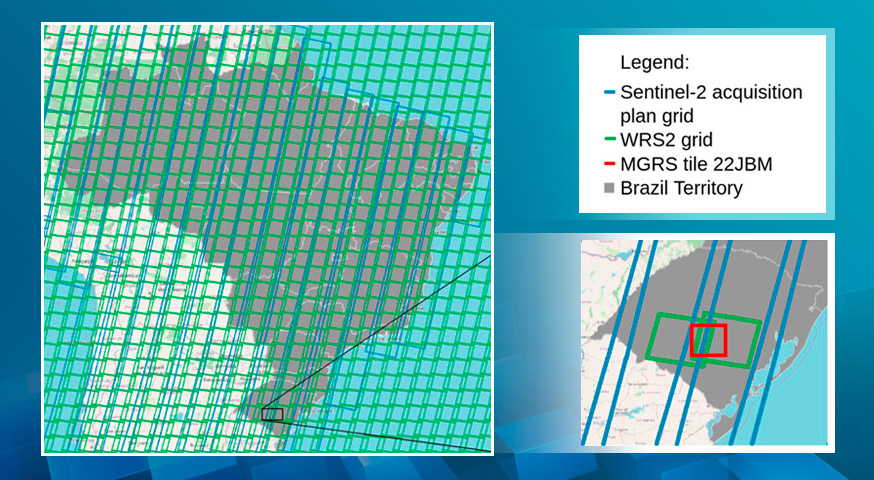A reproducible and replicable approach for harmonizing Landsat-8 and Sentinel-2 images
by Rennan de Freitas Bezerra Marujo¹, Felipe Menino Carlos¹ ², Raphael Willian da Costa¹, Jeferson de Souza Arcanjo¹, José Guilherme Fronza¹ ³, Anderson Reis Soares¹ 4 , Gilberto Ribeiro de Queiroz¹, Karine Reis Ferreira¹
¹ National Institute for Space Research (INPE), São Paulo, Brazil
² Group on Earth Observation (GEO), Reston, VA, United States
³ The Nature Conservancy, Florianópolis, Brazil
4 Cognizant Technology Solutions Corporation, São Paulo, Brazil
DOI: https://doi.org/10.3389/frsen.2023.1254242
Publisher: Frontiers | Published: 13 September 2023.
Abstract
Clouds and cloud shadows significantly impact optical remote sensing. Combining images from different sources can help to obtain more frequent time series of the Earth’s surface. Nevertheless, sensor differences must be accounted for and treated before combining images from multiple sensors. Even after geometric correction, inter-calibration, and bandpass, disparities in image measurements can persist. One potential factor contributing to this phenomenon is directional effects. Bidirectional reflectance distribution function (BRDF) corrections have emerged as an optional processing method to soften differences in surface reflectance (SR) measurements, where the c-factor is one of the available options for this task. The c-factor efficiency is well-proven for medium spatial resolution products. However, its use should be restricted to images from sensors with a narrow view since it causes subtle changes in the processed images. There are currently a limited number of open tools for users to independently process their images. Here, we implemented the required tools to generate a Nadir BRDF-Adjusted Surface Reflectance (NBAR) product through the c-factor approach, and we evaluated them for a study area using Landsat-8 and Sentinel-2 images. Several comparisons were conducted to verify the SR and NBAR differences. Initially, a single-sensor approach was adopted and later a multi-source approach. Notably, NBAR products exhibit fewer disparities compared to SR products (prior to BRDF corrections). The results reinforce that the c-factor can be used to improve time series compatibility and, most importantly, provide the tools to allow users to generate the NBAR products themselves.
Keywords: bidirectional reflectance distribution function (BRDF), landsat, sentinel, NBAR
© This is an open access article distributed under the Creative Commons Attribution License which permits unrestricted use, distribution, and reproduction in any medium, provided the original work is properly cited
Share and Cite
Marujo R. F. B., Carlos F. M., Costa R. W., Arcanjo J. S., Fronza J. G., Soares A. R., Queiroz G. R. and Ferreira K. R. (2023) A reproducible and replicable approach for harmonizing Landsat-8 and Sentinel-2 images. Front. Remote Sens. 4:1254242. doi: 10.3389/frsen.2023.1254242



